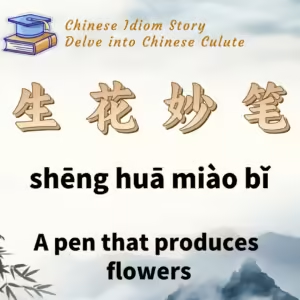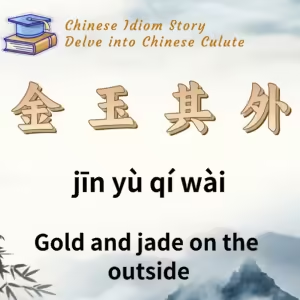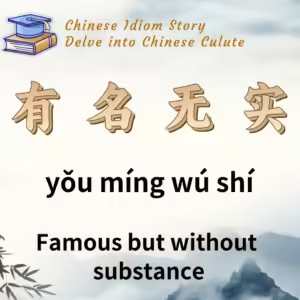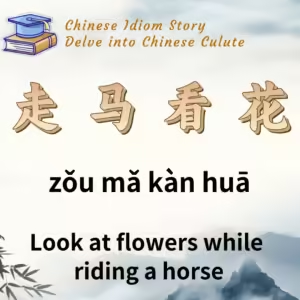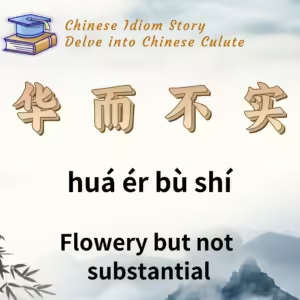
Chinese Idiom: 华而不实 (Hua Er Bu Shi)
English Translation: Flowery but not substantial
pīn yīn: huá ér bù shí
Idiom Meaning: Originally referring to blooming flowers that do not bear fruit, this idiom is now often used to describe something that looks good on the outside but lacks real substance or practicality. It can also refer to superficial boasting or exaggeration.
Historical Source: 《左传·文公五年》 (Zuo Zhuan, Commentary of Zuo).
Idiom Story:
In 622 BC, during the reign of Duke Xiang of Jin, there was a minister named Yang Chufu (阳处父) known for his tendency to engage in grandiose talk and his self-important manner of lecturing others. One day, he was sent by Duke Xiang to visit the State of Wei. On his way back, he passed through Ningcheng in the State of Lu, accompanied by a local man named Ning Ying (宁赢).
After a few days, Ning Ying returned home alone, which puzzled his wife. She asked him why he was back so soon. Ning Ying replied, “Though I was only with Yang Chufu for a few days, I found him to be strong-willed and extreme, always speaking grandly without doing any real work. He is like a tree that only blossoms beautifully but bears no fruit.”
He sighed and continued, “Such people, who are华而不实, inevitably attract resentment from others. If I stay with him, I will not only gain nothing but may even face trouble. So, I chose to return early.”
Indeed, a year later, Yang Chufu was killed by others, confirming Ning Ying’s intuition.
From this story, the idiom “华而不实” emerged, reflecting the idea that those who are only showy and lack genuine substance will eventually fall into disfavor and face consequences.


